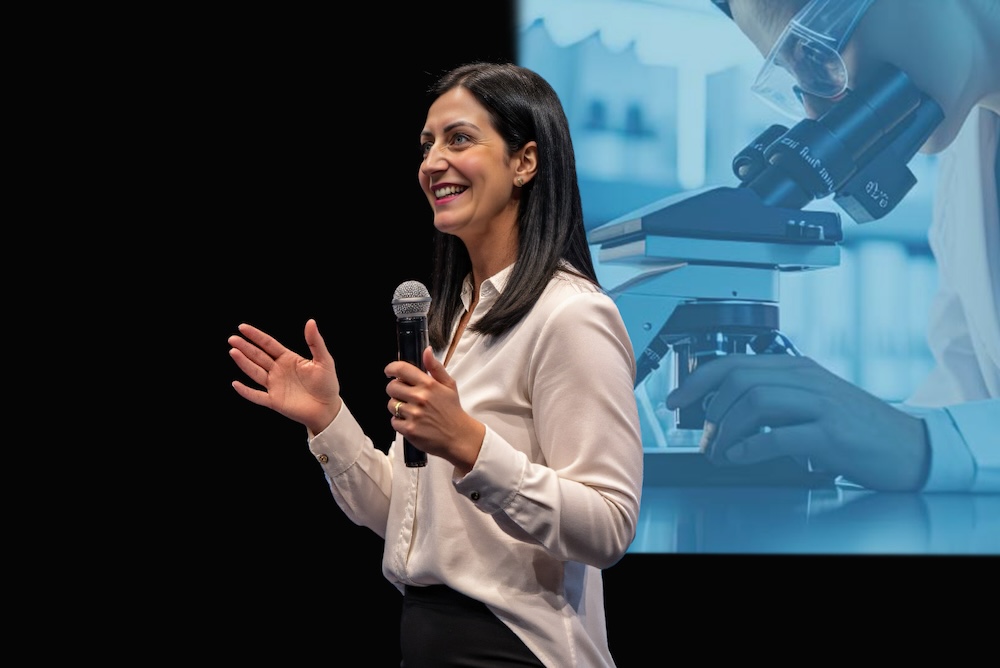What’s blocking real progress in health tech? Startups, power and the fight for impact

Interview with Daniela Schardinger: On Innovation, Systems Change and the Real Cost of Progress
Q: Your career spans startups, global health initiatives, and emerging tech. What’s the common thread that’s guided your journey?
A: Curiosity and a commitment to solving real problems.
Whether I’ve been working with a scrappy startup or sitting at a global policy table, the throughline is the same: identifying overlooked needs and finding practical, scalable ways to meet them.
Innovation is only valuable if it translates to real-world impact, and I’ve always been drawn to the spaces where that’s still missing.
Q: You’ve worked with founders, investors, and multilateral organisations.
What’s something each group often overlooks, but shouldn’t?
A: Founders often underestimate how long it takes to shift behaviours in healthcare.
Investors often overlook the emotional and systemic barriers that stall adoption, even when the science is sound.
And large institutions can miss the urgency and the fact that slow change still costs lives.
The best outcomes happen when these groups learn to speak each other’s language.
That’s where I try to operate: at the intersection of innovation, capital, and human behaviour.
Q: Has anything challenged your assumptions about how innovation works, or doesn’t?
A: I used to think the biggest challenge in health innovation was proving the science.
Now I believe it’s proving the urgency.
We have incredible solutions sitting on shelves, not because they’re unproven, but because the system is slow to change.
That’s shifted how I define success.
Real innovation isn’t just about the breakthrough anymore, it’s about navigating all the roadblocks, skepticism, and outdated habits that stand between an idea and its impact.
The technology is often ready. The question is: are we?
Q: Startups often drive innovation, yet many find themselves blocked or under pressure once they enter spaces owned by big players.
What’s your take on that dynamic?
A: Startups are the R&D engine of our industry.
They take the risks, do the heavy lifting to prove a concept, and often pave the way for entirely new markets.
But the moment they show signs of traction, especially in high-margin verticals, they’re suddenly on the radar of corporates who didn’t necessarily innovate but now feel threatened.
Instead of collaboration, what we often see is resistance.
Larger companies protect their turf instead of asking, “How can we work together to raise the standard?”
That’s a missed opportunity. Because if we really want progress, we need to stop treating innovation like a zero-sum game.
There’s a reason startups move fast. It’s not just agility, it’s survival.
But survival shouldn’t come at the cost of constantly defending your right to exist.
Q: The funding landscape is changing fast.
VCs are more risk-averse, exits are taking longer, so who’s funding the hard innovation now?
A: That’s the billion-dollar question.
In a more cautious climate, we’re asking startups to prove everything upfront: the clinical data, the market traction, the regulatory roadmap.
And yet they’re being funded as if they’re consumer apps. That disconnect is unsustainable.
We’re also seeing acquirers take fewer risks.
M&A or even licensing processes can now take 12, 24, even 36 months.
And during that time, the startup is expected to keep operating as if capital and time are unlimited. But they’re not.
Some of the most promising innovations die during due diligence, not because they fail, but because they’re left hanging too long.
We need new funding models, ones that recognize the capital intensity of serious innovation and the value of speed.
Otherwise, we’re penalising the very companies that are doing the work others won’t.
Q: When launching a new product, how critical is training and why is it so often underestimated?
A: Training is the linchpin.
You can have the most brilliant product, but if the people using it don’t feel confident or convinced, it fails.
In healthcare especially, education is about much more than instructions.
It’s about trust, mindset, and unlearning outdated habits.
We need to stop treating training as a final checkbox.
It should be part of the innovation itself. Because when you equip people with not just tools but understanding, you unlock real change.
Q: You sit in rooms where policy, innovation, and strategy intersect.
What does true leadership look like in that context?
A: True leadership is about creating spaces where the right conversations can happen, with all the right people in the room.
In my work with the Gates Foundation’s Innovation Equity Steering Committee and the World Economic Forum’s
Innovator Community as a Technology Pioneer, I’ve seen how much progress depends on who gets a seat at the table.
Too often, it’s only the big corporates who are invited to define the future of healthcare.
But real change happens when startups, healthcare providers, policymakers, funders, and patients all speak honestly about the barriers they face.
We need every voice to build systems that actually work.
Leadership, to me, is seeing the broad shifts in markets and policy, while also understanding something as specific as why a provider isn’t switching from an outdated Product A to an innovative Product B.
That’s where the disconnect lives. And that’s where leadership matters most.
Because we don’t need more panels. We need progress.
And progress only happens when power is shared and the right people are finally in the room together.
About Daniela Schardinger
Daniela Schardinger is an award-winning innovation strategist and global advocate for healthcare equity.
She advises startups, funders, and policymakers at the intersection of science, systems, and scale.
Daniela serves on the Gates Foundation’s Innovation Equity Steering Committee, is a member of the World Economic Forum’s Innovator Community, and shares her insights as part of the Forbes Business Council.






